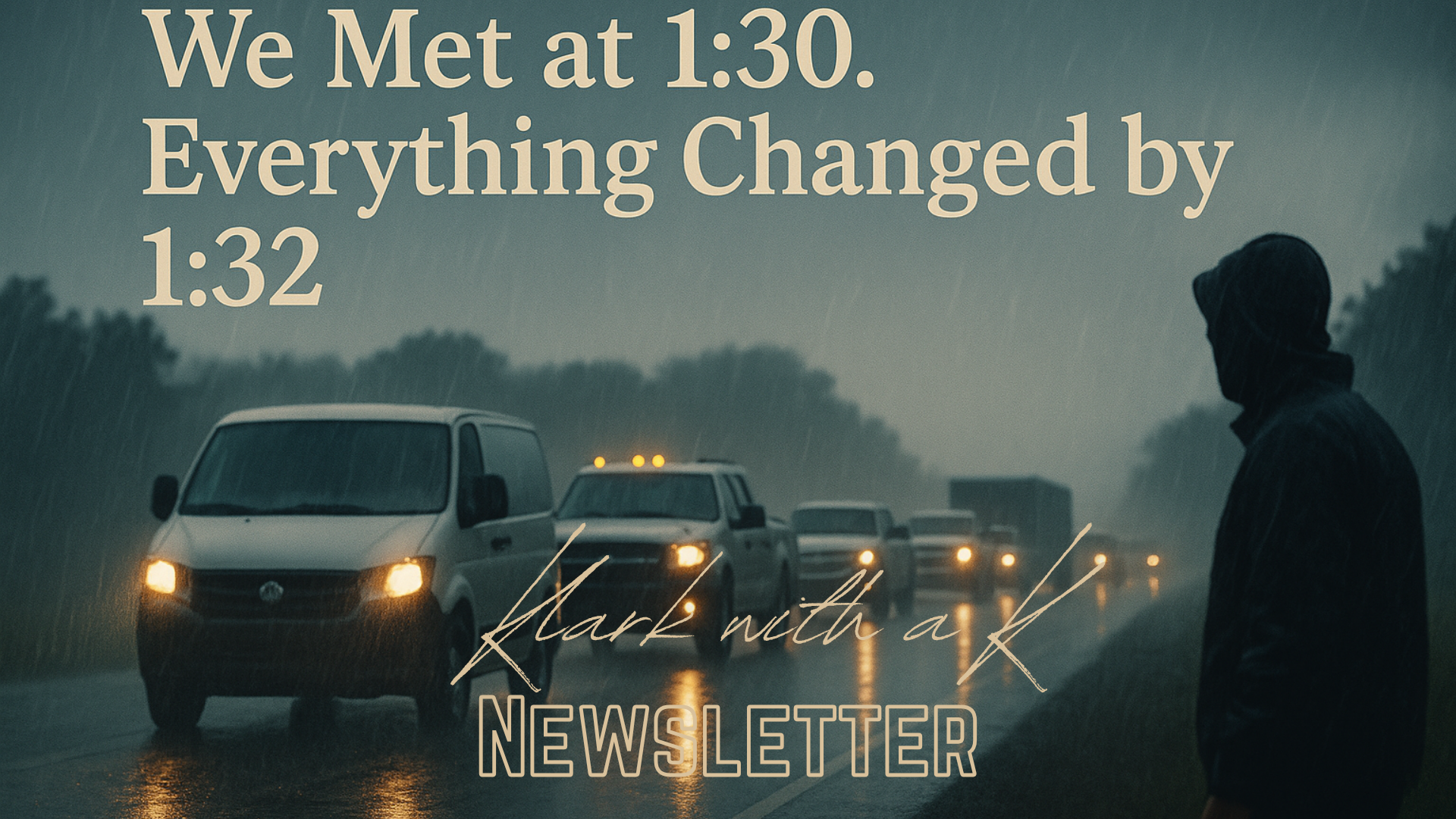
It was 2008. I was living in Atlanta, working for one of the largest disaster response companies in the world. I had opened a local branch and was managing Southeast operations.
Hurricane Ike was barreling toward the Gulf Coast. It was likely to strike Louisiana or Houston.
Command called me in. They needed a small, capable crew that could deploy quickly and manage a few large commercial losses on the ground, mostly independently.
The team I pulled together was solid. A mix of seasoned technicians, supervisors, project managers, a few admin pros. And our top new salesman.
We had a few days’ notice before landfall. Just enough time to assemble, load up, and head out to stage.
We met on the west side of Atlanta, near Six Flags, in a big parking lot that was central for everyone. I chose Sunday at 1:30 p.m., so folks could go to church, see their families, and still make it.
The group was experienced. Some had CAT deployments under their belt. All were steady.
Except JJ. (Not his real name.)
JJ was our salesman. This was his first deployment. First time being more than a state away, let alone two time zones. From his fiancée and young child. They were a tight family. The kind that makes parting feel like a small heartbreak.
I pulled into the lot around 1:10, planning the route, checking logistics. The supers had already loaded the trailers the night before. Admin had stocked up at Sam’s. Food, water, things you can’t count on being available in the impact zone. Long-range radios were charged and ready. We had vans, pickups, trailers, a box truck or two. Eight to ten vehicles in total. Around twenty people.
At 1:30, we gathered to huddle. Right before we kicked off, I looked over and saw JJ standing with his soon to be wife and child. The three of them wrapped in a long, still embrace. A quiet one. Could’ve been a prayer. I felt weird staring but it was powerful.
And that’s when it hit me. After all the deployments. All the storms. All the moving parts. I finally understood the real job. It wasn’t to be a restorer.
It was to care for these humans. To lead them well.
JJ's fiance caught me watching. She let go of him, walked straight to my window. Kind woman. Blonde hair. Maybe 5’6”, maybe 5’8”. Strong. Not frail in any sense—her presence filled the space.
She looked me in the eye and said: “Klark. You’re responsible. I know everyone’s responsible for themselves. But you’re responsible for the team. And for my husband. Collectively.”
I nodded. “Yes ma’am. I wouldn’t have it any other way.”
She said, “Bring him home in one piece.”
I told her I would, and that he’d come back with a lifetime of experience, too.
That exchange changed the way I saw leadership.
The storm came and went. We staged well. Some of the crew broke off for other projects. Everyone came home safe. Especially JJ.
He was nervous on the way down. Super green, fidgety, wanting a clearer plan than I could give. But we kept it light with comedy CDs and hours of Howard Stern.
I also broke one of my cardinal rules: I let someone open a bag of Corn Nuts in a closed vehicle. Never happened again. I Promise. That decision haunts me more than most storms.
But the mission?
The mission reminded me that these big events, these national, international responses, yeah, they’re exciting. They’re memorable. But it’s the people you do them with that matter most. Those are the memories we talk about every so often.
Simon Sinek said it right:
“Leadership isn’t about being in charge.
It’s about caring for those in your charge.”
And once you really see it that way,
there’s no going back.
Consider subscribing if you enjoy recollections such as this one.
Klark